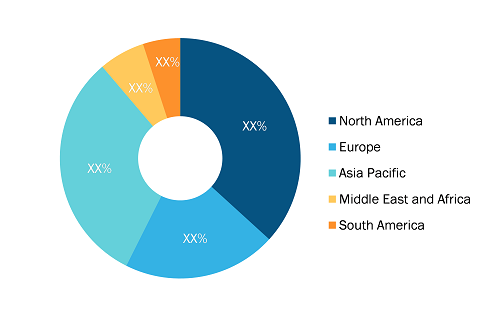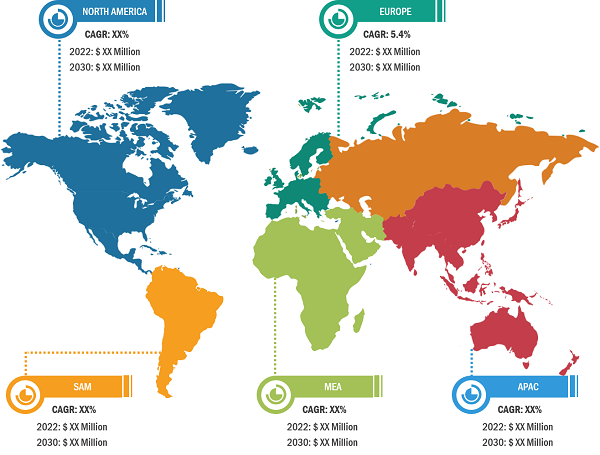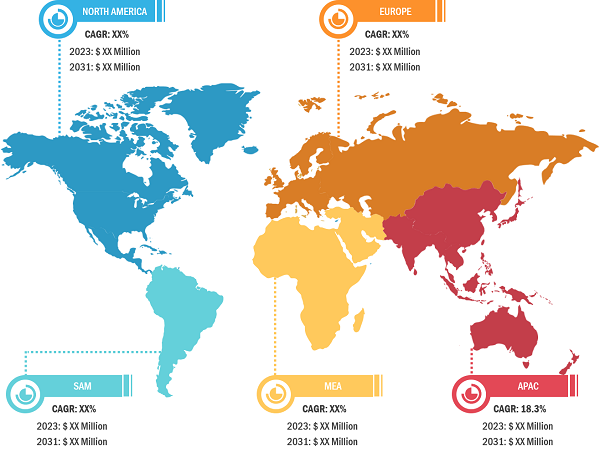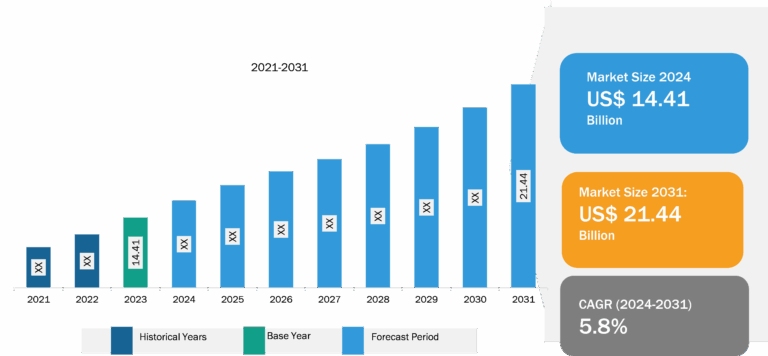
Electric Vehicle Heat Pump System Market
Electric vehicles are gaining significant traction as a viable alternative to traditional gasoline-powered cars. Considering climate change concerns and the need to minimize greenhouse gas emissions, electric vehicles offer a clean and sustainable means of transportation. As a result, electric vehicles play a crucial role in energy transition, supporting the switch to renewable and sustainable energy sources. Electric vehicles rely on renewable energy sources such as wind, solar, and hydropower to recharge their batteries. In addition, electric vehicles can contribute to the development of renewable energy sources. With the help of renewable power to charge electric vehicles, there will be a reduction in dependence on conventional fuels as well as carbon footprints in the coming years, along with a rise in investment in renewable energy infrastructure.
Electric vehicles play a major role in the energy transition as they can also serve as energy storage devices. When connected to the grid, electric vehicle batteries can store surplus energy from renewable sources during low demand. This energy can then be used to power homes and businesses during high demand. This process, known as vehicle-to-grid (V2G) technology, helps balance the electric grid and reduces the need for energy storage infrastructure.

Governments of various countries across the globe are taking various initiatives to fulfill the energy transition goals of economies across the globe. In March 2024, as per the US Environmental Protection Agency (EPA) and President Biden’s goal, 35% of the total new vehicles sold in the US must be electric vehicles by 2032. In addition, in October 2022, the European Union set the goal of ensuring that the registration of new cars and vans in Europe will be emission-free by 2035, which is expected to support the region’s goal of becoming climate-neutral by 2050. As per the new European legislation, the total electric vehicle fleet in the region is projected to reach 40 million units by 2030 from more than 8 million units in 2023. Therefore, the rising adoption of sustainable power sources and growing climate-neutral goals by economies across the globe are expected to support the future energy transition, which is expected to be the key electric vehicle heat pump systems market trend from 2023 to 2031.
Electric Vehicle Heat Pump System Market Share: Vehicle Type Overview
Based on vehicle type, the electric vehicle heat pump systems market is bifurcated into passenger vehicles and commercial vehicles. The electric vehicle heat pump systems market for the passenger vehicle segment is experiencing significant growth, driven by numerous regulatory incentives, environmental awareness, and technological advancements. As businesses increasingly recognize the demand for sustainable and cost-effective transportation solutions, the demand for electric passenger vehicles is also rising. The commercial vehicle segment is gaining traction due to urban mobility needs, environmental consciousness, and advancements in technology. The passenger vehicle segment held a larger electric vehicle heat pump systems market share in 2023.
The scope of the electric vehicle heat pump systems market report focuses on North America (US, Canada, and Mexico), Europe (Spain, UK, Germany, France, Italy, and Rest of Europe), Asia Pacific (South Korea, China, India, Japan, Australia, and Rest of Asia Pacific), Middle East & Africa (South Africa, Saudi Arabia, UAE, and Rest of Middle East & Africa), and South & Central America (Brazil, Argentina, and Rest of South & Central America).
The European Union has taken substantial measures to lower carbon emissions from the automotive sector. In March 2023, new CO2 standards were adopted for cars and vans, targeting the mandate of ~55% reduction in emissions for new cars and ~50% reduction for new vans by 2030 compared to 2021 levels; the EU further aims to achieve ~100% reduction for these vehicle categories by 2035. Its Net Zero Industry Act aims to have ~90% of the EU’s annual battery demand met by EU battery manufacturers. This includes achieving a manufacturing capacity of at least 550 GWh by 2030. While Europe accounts for ~25% of the global EV production, it has limited its involvement in the EV supply chain to ~20%, except for cobalt processing. Further, the well-established EV business, coupled with ambitious regulatory initiatives, fuels the growth of the electric vehicle market in Europe, which is anticipated to fuel the electric vehicle heat pump systems market growth in the region.
The EV sales in Europe are witnessing a rise in the number of new registrations of EVs across the region. Charging infrastructure is another major factor that is expected to benefit Europe’s EV sales. According to the Association des Constructeurs Européens d’Automobiles (ACEA), Europe is anticipated to reach the proposed ~55% CO2 reduction for passenger cars by 2030. Moreover, up to ~279,000 and ~56,000 charging points will be required for trucks and buses, respectively, by 2030. This data shows that the probable establishment of a robust charging infrastructure is anticipated to offer lucrative opportunities for the Europe electric vehicle market, which contributes to the growing electric vehicle heat pump systems market size.
The favorable government policies, legislations, incentives, funding, research, and taxation are contributing to the higher adoption of EVs and PHEVs. To pioneer emission reduction efforts through transportation, the majority of the Danish Parliament members passed an agreement for the green transition of road transport. According to the agreement, the government is planning to incorporate ~775,000 electric cars into the automotive ecosystem of Denmark by 2030. Thus, these favorable government policies are driving EV sales, which positively influences the electric vehicle heat pump systems market in Europe. The presence of well-established automotive players such as Volvo, Volkswagen, Kia, Toyota, BMW, Audi, Mercedes, Skoda, Renault, and Nissan contribute to the growth of the automotive sector in Sweden, which fuels the electric vehicle heat pump systems market growth in Europe.
Electric Vehicle Heat Pump System Market: Competitive Landscape and Key Developments
Airbus SE, The Boeing Company, Ball Corporation, Korea Aerospace Industries Ltd, Lockheed Martin Corporation, Maxar Technologies Inc, Northrop Grumman Corporation, Thales Group, Israel Aerospace Industries Ltd, and OHB SE are among the key players covered in the electric vehicle heat pump systems market report. Companies in the market mainly focus on product and service enhancements by integrating advanced features and technologies into their offerings.







